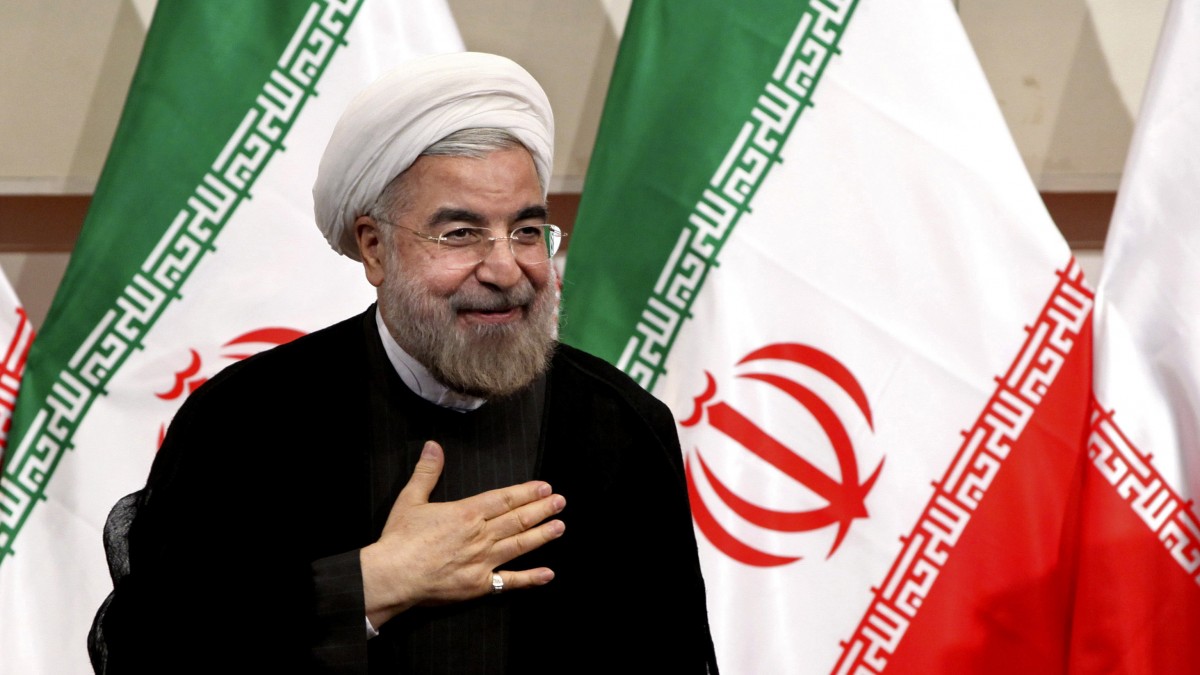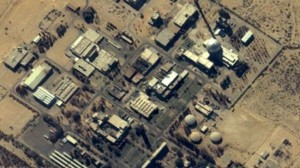
Monday marks the first day of the six-month reduction of U.S. sanctions against Iran in exchange for a freezing of a portion of Iran’s nuclear program. While globally, this situation is being seen as a high diplomatic achievement, opposition toward an American-Iranian peace is increasing at an intense rate.
Recently, the Senate has moved to table the American Israel Public Affairs Committee-backed Nuclear Weapon Free Iran Act of 2013, which would have imposed new sanctions on Iran automatically if Iran failed to negotiate a permanent reduction of its nuclear enrichment capability. While the Senate is no longer considering the bill, it had the confirmed support of 59 senators and was thought to be possibly veto-proof.
The reduction is part of a deal Iran has been negotiating over the last few months with a coalition of world powers — the U.S., Germany, U.K., Russia, France and China — or the “P5+1.”
The deal, which calls for an end to Iranian production of 20 percent enriched uranium — a key component in both nuclear energy generation and nuclear warhead cores fabrication — would permit Iran to sell a larger amount of its petroleum on the open market on the promise that the nation will consent to regular inspections and that it will agree to a permanent agreement within six months.
However, with Iranian President Hassan Rouhani boasting earlier this month that the “Geneva deal means the surrender of big powers before the great nation of Iran” in an attempt to placate hardliners in his country and with American conservatives calling for the U.S. to harden its stance with additional sanctions, the negotiation process is being attacked politically from both ends by internal critics. This was conflated by comments from Iran’s supreme leader, Ayatollah Ali Khamenei, calling the U.S. hypocritical on human rights issues.
“There is some criticism, interestingly enough, from reformists on the other side of the political spectrum, who are arguing that many of the promises that Rouhani made about political reform in order to win election last June have really remained unfulfilled, and he’s really not addressing them at all,” said Ali Ansari, a professor of Iranian history as St. Andrew’s College in Scotland, on Rouhani’s difficulties selling the deal in Iran. “So Rouhani finds himself really under attack from two quite distinct political groups, and both of them expose some of his fragility.”
The need for change
From the Iranian point-of-view, it’s hard to imagine how the nation can survive for much longer without some form of sanction relief. With the Iranian rial devaluing as much as 80 percent, the economy has effectively became a black-market system. While the P5+1 wrote “backdoors” into the sanction treaties that allowed the unrestricted flow of medication into Iran, the international chokehold on the Iranian banking system and the high inflation that come from devaluation made critical medications nearly impossible to obtain.
The Guardian, in 2013, reported that approximately 85,000 Iranian cancer patients requiring chemotherapy or radiotherapy, 40,000 haemophiliacs, 23,000 HIV/AIDS patients and 8,000 thalassaemia — a blood disorder consisting of too much dissolved iron in the bloodstream — cannot receive the treatments they desperately need due to the sanctions.
In the hope of staving off a humanitarian nightmare and bringing some relief to its people, Iran has announced its intentions to commit to the peace talks. However, many in Iran feel that — as a sovereign nation — Iran has the right to act in its own best interest. Iran has always held that it is not interested in nuclear armaments and that its nuclear research is for peaceful purposes only; mainly, to increase power generation yields from its reactors.
“What we have given up is not only incomparable with what we have received, but much less significant than can be called a win-win situation,” wrote Hossein Shariatmadari, the editor in chief of Kayhan, a newspaper often referred to as the mouthpiece for Iran’s conservative establishment.
The Iranian nuclear power program is relatively new. Iran’s first nuclear power plant, Bushehr I, was opened on Sept. 12, 2011, due to major assistance from the Russian government. Iran was working on a new 360-megawatt plant to be situated near Darkhovin, with plans to set up additional medium-sized plants and uranium mines throughout the country as a replacement to the country’s existing power generation grid. While there is nothing that currently proves that Iran is engaged in nuclear armament, the International Atomic Energy Agency has found that Iran did attempt to develop nuclear weapon capability prior to 2003.
The tentative deal holds Iran’s enrichment levels to five percent or less and halts the installation of new centrifuges and continued development of a heavy-water reactor. In addition to a relief from some of the sanctions, some of Iran’s frozen assets will also be released.
The Israel question
As final talks are scheduled to start in a few weeks, difficult questions linger. For example, a classified 2013 U.S. intelligence report indicated that Iran “is developing nuclear capabilities to […] give it the ability to develop nuclear weapons, should the decision be made to do so.” The intelligence community does “not know if Iran will eventually decide to build nuclear weapons.”

In other words, the international community initiated sanctions on Iran on the basis that it could make nuclear weapons instead of on the basis of proof that it is making nuclear weapons. This reality, among others, forces the question of how a fiscally-healthy Iran will relate to the rest of the Middle East, and more importantly, how the rest of the Middle East will react to Iran.
In considering this, one must consider Israel. Israel is currently the only nuclear-armed nation in the Middle East — although, it will not admit it publicly. Israel developed its nuclear program despite repeated calls from the international community to agree to the Nuclear Non-Proliferation Treaty and to submit to inspections and the publication of Mordechai Vanunu’s photographs of the Israeli nuclear weapons facility at Dimona (for which, Vavunu was imprisoned and his civil liberties are being actively restricted to this day).
Despite this seeming ambiguity between U.S. acceptance of Israel and condemnation of Iran over the exact same charge, Israel’s recent tone against the relaxation of sanctions against Iran sounds to many like a veiled threat.
Earlier this month, Israeli Deputy Defense Minister Danny Danon wrote an article in Politico, arguing Israel’s right to take offensive action to protect its interests — even without a U.S. blessing. Citing two separate incidents — the bombing of the Osirak reactor in Iraq in 1981 and the bombing of a Syrian nuclear refinement facility in 2007 — Danon argued that Israel is prepared to “go it alone” against Iran, if needed.
“Over the next few months, the negotiations with the Iranians and the Palestinians will reach the crucial stages when difficult decisions will need to be made by all those involved,” explained Danon. “It is safe to assume that areas of contention will arise between us and our American allies. I am confident that both sides will work hard to ensure that whatever differences we may have on specific policy questions, we will not let these distractions impede upon our unwavering alliance.”
Per a recent survey by the Times of Israel, only 22 percent of Israelis believe that the Obama administration will be able to prevent Iran from achieving a nuclear weapon. Israeli Prime Minister Benjamin Netanyahu has called for the dismantling of all nuclear centrifuges in Iran, which the Iranians have already rejected as a possibility. Netanyahu has accused Tehran of arming Hamas, Hezbollah and the Islamic Jihad.
“What was achieved last night in Geneva is not a historic agreement; it is a historic mistake,” Netanyahu told his cabinet following the November announcement of the nuclear deal. “Today the world has become a much more dangerous place because the most dangerous regime in the world has taken a significant step toward attaining the most dangerous weapon in the world.
Syria
The other consideration is Syria. U.N. Secretary-General Ban Ki-moon had invited Iran to participate in the upcoming peace talks on Syria — “Geneva 2.” Ban argues that Iran must be included in any talks about the future of the region. The Syrian National Coalition summarily rejects this and has threatened to boycott the talks unless Iran agrees to submit to the terms of the Geneva 1 — the 2012 Syrian communique that criticized the administration of Bashar Assad. Iran is currently engaged in Syria, fighting the rebels with the Assad administration.
“We … remain deeply concerned about Iran’s contributions to the (President Bashar) Assad regime’s brutal campaign against its own people, which has contributed to the growth of extremism and instability in the region. If Iran does not fully and publicly accept the Geneva communique, the invitation must be rescinded,” said State Department spokeswoman Jen Psaki.
But Iran rejects these terms on the grounds that the nation was not involved in drafting the “Geneva 1” communique. As a result, Ban rescinded his invitation to Iran Monday.
“He (Ban) continues to urge Iran to join the global consensus behind the Geneva communiqué,” Ban’s spokesman Martin Nesirky said. “Given that it has chosen to remain outside that basic understanding, (Ban) has decided that the one-day Montreux gathering will proceed without Iran’s participation.”